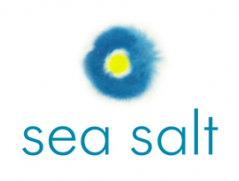The hearing sense perceives the sounding element and reveals intimate knowledge of the nature of something. The nine year old starts to experience things more deeply and can take an interest in music, though this is most often connected to what is around them. It is from about fourteen years old we can crave a connection to hear the nature of something else, and we start to relate to particular genres of music or artists that have a similar resonance to our own, or that give a mood-altering resonance. It may be obvious from early in life when a person is ‘musically gifted’. Yet the capacity to hear the other without judgment or pain is part of the process of maturation that can vary greatly depending on how the person was influenced as a young child in their sensitivity to listen.
Hyper sense of hearing
A person with hyper sensitive hearing is over sensitive to sound, sometimes to the point of pain. They can be affected when a sound is out of key, tone, pitch, rhythm, or the volume is not measured. Their inner space feels penetrated and they may leave the room or area, or put their hands over their ears in order to block the sound. As a sound comes towards them, they are sensitive to individual components and may lose themselves to it in pleasure, or they can be disturbed and not want to listen. A child will find it difficult, if not impossible to not be affected by the resonance. They may repeatedly create or play one particular sound, having a desire for it to resonate in them.
Hypo sense of hearing
Hypo sense of hearing it to lack differentiation between various sounds and components of sounds. Differentiation in pitch, tone, rhythm and volume is difficult for them to perceive, and they may not realise the way sound affects the space. They too may repeat listening to sounds but be less discerning as it is the overall stimulation that creates the interest.
How to harmonise and support the development of the hearing sense
The pentatonic scale produces harmony, therefore, can be harmonizing on the sense of hearing and is an especially therapeutic sound with which to fill the room in the early years. Providing handmade instruments and natural objects to listen to the sound variations can increase the appreciation for diversity and discernment of the kingdoms of nature. Children are supported by singing and hearing compilations and varieties of sounds, rhythms and harmonies. Quiet times are also important.
It is valuable to experience live music, theatre, poetry and stories, through which we can truly meet the human being behind the sound. Allowing the adolescents to experiment with a wide variety of musical styles, sounds, and noises, while ensuring to provide experiences that activate the heart rather than sympathies and antipathies can help come towards a healthy measure and the ability to listen deeply.
Developing the Self Developing the World offer an Arts Program that provides experiences which use the soul processes of thinking, feeling and willing in harmony through speech, drama, singing and drawing, drawing, painting and eurythmy. They are a great support especially to the growing child, who already speaks the language of inner experience most readily. Tone Eurythmy in particular requires listening to tones and moving the body into gestures that move the inner life in harmonious tones. Contact me to be put in touch with a therapist.
